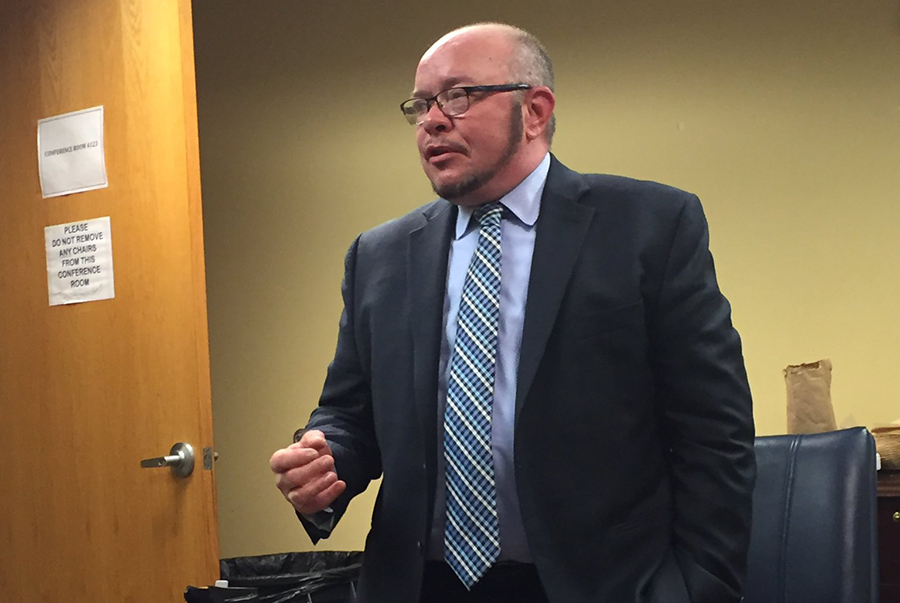After working with transgender young people and their families as a therapist, Dr. Elijah C. Nealy was prompted to write a book. The Philadelphia native discussed his new work, “Transgender Children and Youth: Cultivating Pride and Joy with Families in Transition,” with students at the University of Pennsylvania June 23. In the book, Nealy discusses ways parents and professionals can work with trans children and adolescents to ensure healthy and happy lives.
Nealy told PGN he did not come out as a transgender man until he was in his 40s but said a book such as his would have “helped a lot” if it existed when he was younger. He said he grew up in a conservative, religious background.
“I don’t think I heard the words ‘gay’ or ‘lesbian’ back then until I was almost out of high school,” he said. “I learned that there were lesbians in the world and I was in a female body and I liked women, so I just sort of deduced, ‘Oh, that must be what I am: a lesbian.’ And then I discovered at the bars here that there were butch lesbians. So at that point, no one was talking about trans stuff or gender identity at all.”
Nealy said he often gets questions about why there are “so many more” trans young people today, but added he doesn’t know if that’s an accurate statement.
“I think we’re living in a world now where there are more visible trans adults, increasingly visible trans adolescents [and] even young kids, who are living in a world where the Internet has suddenly reduced the isolation and lack of information trans people have had historically,” Nealy said. “That means young people are able to say, ‘This is who I am’ much earlier.”
Nealy noted that many parents may not necessarily know about the steps of social or medical transitions for trans youth. He added that parents have their own “coming-out” process as well.
“If your kid comes out as gay or lesbian, that’s not necessarily visible,” Nealy said. “You don’t have to tell every single person in your neighborhood but if your kid is gender-transitioning, it’s very public. The neighbors see it when your kid goes to the bus stop. So the parents have huge circles — usually larger than the young person — that they have to tell.”
Nealy’s book also touches on the intersections of race and class for trans youth. He said the LGB community needs to “step up” around these intersections.
When Nealy left the LGBT Community Center in New York City, he said he conducted a survey of the board of directors of LGBT-identified organizations in the city.
“Even eight years ago, most of those boards were almost entirely white and almost entirely white gay men and most of those agencies were serving queer people of color,” Nealy said. “That’s simply not OK.”
Additionally, he noted the “amplified risks” of trans people of color when dealing with police officers and described a hypothetical situation in which a black trans woman could be pulled over and the woman’s license would not have a gender matching her presentation.
“I think it’s a very real fear for families, particularly for trans-feminine children and particularly families of color,” Nealy said. “I think it has to be talked about very directly and I think those of us who are working with trans youth need to be talking about it and the reality of how life-threatening it still is for many people to be out as trans, and particularly for trans people that are also navigating intersections around racism.”
Nealy offered advice for trans youth:
“Trust yourself, trust that you know who you are and to find people who can support and affirm you. To know that the way it may [feel] in the moment, with people who aren’t accepting in your life, it’s not necessarily the end of the story.”
Visit www.elijahnealy.com for more information.

